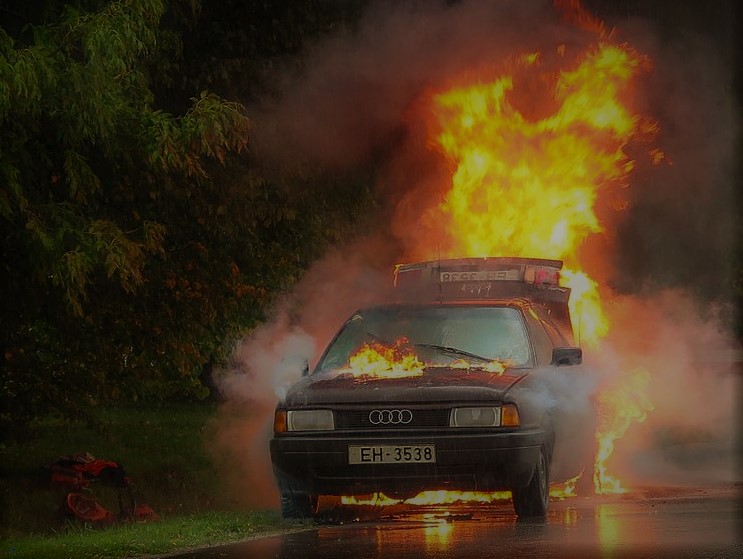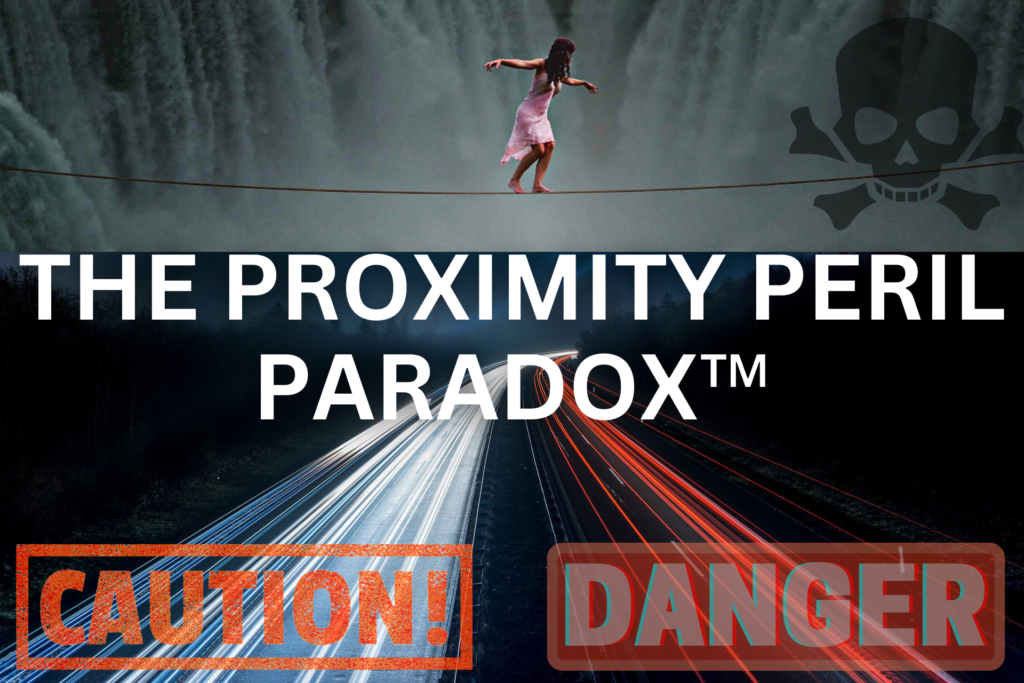The Proximity Peril Paradox™ creates an illusion in your mind that makes you believe you are safer the closer you are to reaching your destination. Believing this delusion places you in mortal danger.
Life requires effort and vigilance. On the contrary, death takes little effort just a momentary lack of attention. The veil between life and death may be opaque but unfortunately, it is razor-thin. A moment’s wariness — or conversely — a loss of focus, at a seemingly insignificant, yet critical, point in time is all that stands between life and catastrophe.
You are in greatest jeopardy when caught unawares by those dangers hidden in the blurry blind spot of your brain — dangers which you are not consciously aware of, those not in the forefront of your mind.
Many years ago, I was saddened to hear that one of my brothers-in-law had died in a car crash on a long drive on his way home. To my knowledge, he was in excellent physical condition and in the prime of his life. What I was most surprised to learn was that the accident had occurred at a point in the trip when he was very close to home. This didn’t seem to make sense. Aren’t you safer the closer you are to your destination, in a familiar neighborhood, on a road where you had driven again and again over the years?
His death answered that question with an emphatic, “No.”
And so, as time passed, my mind ruminated over this paradox again and again.
Every death of someone we know saddens us but some shock us by being so unexpected. We expect life’s events to conform to our understanding of reality’s rules as codified by our experience. Life and death should reasonably fit in what we believe is the natural order of things. When it doesn’t, it’s like a lightning bolt striking us on a sunny day out of a cloudless, blue sky.
This particular accident disturbed me because none of the typical danger indicators seemed to apply. (Note: This was in the years before smartphones and texting). My mind told me that my brother-in-law should have been safest the closer he got to home. Over time, I eventually saw through this cognitive illusion to arrive at an explanation — a theory — that unveiled the dangerous truth.

Understanding The Proximity Peril Paradox Can Save Your Life
Some of you may already be intuitively aware of the concept of what I term The Proximity Peril Paradox but unless it is foremost in your mind at the time when you are facing this danger you may unwittingly find yourself the victim of an accident or an attack — whether you are walking, jogging, hiking, or driving.
The Proximity Peril Paradox's Illusion
The closer you get to your destination, the more danger you actually are in because of a natural tendency to let down your guard and allow your attention to waver as your journey nears its end and you begin to relax. This is caused by the illusion created by a false, emotional belief held by either your subconscious or conscious mind that the closer to home, or end destination, you are, the safer you are. It’s perfectly understandable after all, “home” has a lifelong mental and emotional association with “safety” for most of us. However, believe this lie and you may die.
When you fall prey to The Proximity Peril Paradox’s illusion you are in extreme, mortal danger. This is especially true when driving. Mental images of your imminent, imagined future of being at home begin to form in your mind, partially blinding you to your actual surroundings and the potential hazards on the road.
Even if you are not a visual thinker, you will still tend to focus your mind on distracting thoughts of all the things you need to do upon actually reaching your destination. Unpacking; feeding the kids, cat, or dog; preparing for bed; etc.
Being on foot does not make you immune to these dangers. Joggers and hikers can also fall victim to The Proximity Peril Paradox. The illusion of being safer as you approach home deceives you and makes you more likely to become oblivious to hidden holes or tripping hazards in your path or worse, predators lurking in the shadows.
The Lesson to Remember:
Survival necessitates never letting your guard down until absolutely certain you are physically safe, sound, and secure.
The Actionable Takeaway:
As your journey nears its end, you need to be wide awake and hyper-aware.
An alarm should screech in your skull whenever you say, think, or hear these seemingly innocuous but actually quite dangerous words because they will dilute the intensity of your vigilance with their deceptive security-blanket coziness and false assurance: “Almost there!” or “Nearly home!”
Sit up straight, take a deep breath, and warn yourself (aloud if need be) to see, hear, and pay attention to everything around you. Do not allow relaxation to creep up on you. Do not drop your guard. Do not do anything remotely risky.
Otherwise, you may not make it home alive. And if that scares you and floods your bloodstream with adrenaline, good! You should never take your life and safety for granted.
If you hesitate to follow this advice out of a silly concern that you won’t be able to get to sleep when you finally get home, please don’t. You can always have a nice cup of herbal tea followed by some slow, deep breathing to help you drift off to sleep.
In all your comings and goings, please recall The Proximity Peril Paradox because I shared it with you in the hope that it might save your life one day or night.
Beware The Proximity Peril Paradox and live to share your story with others whose lives you may save in turn.

